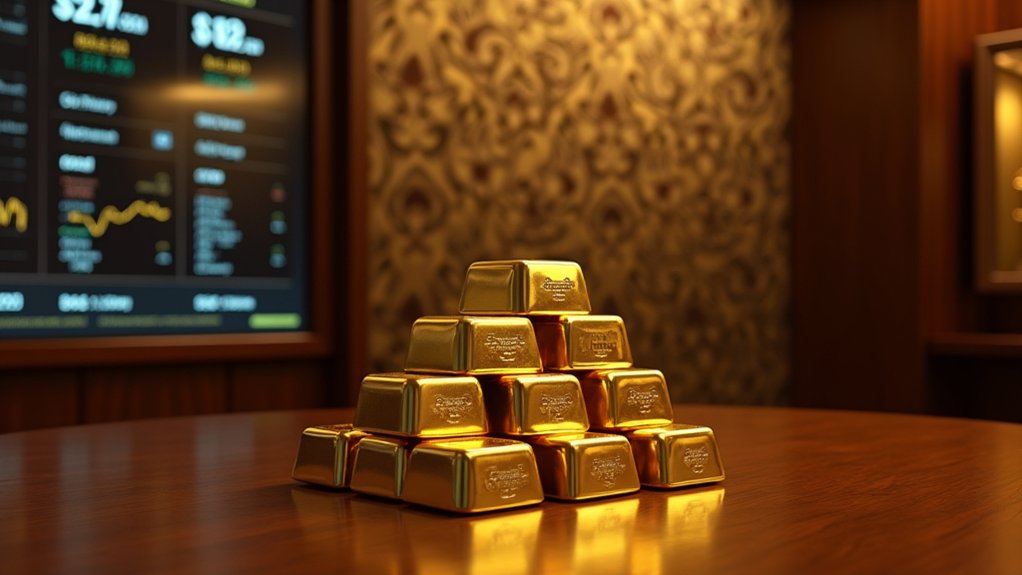Bullion banking in Indonesia? You bet. The country has just rolled out its shiny new bullion banking services. This isn’t just some flash-in-the-pan idea; it’s a serious financial innovation aimed at pulling private gold reserves into the formal banking system. Why? To boost Indonesia’s economic indicators, of course. Gold isn’t just a pretty metal here; it’s a cultural icon representing prosperity and security. So, when you combine gold with banking, you’re onto something big.
The big players in this game are PT Bank Syariah Indonesia and PT Pegadaian. They’re like the dynamic duo of gold management, ready to tackle the challenge of integrating gold into everyday banking. The Financial Services Authority (OJK) is keeping a watchful eye on them, ensuring everything runs smoothly. And let’s be real, the potential economic impact is huge. We’re talking about stabilizing the economy and creating jobs. Sounds good, right?
Now, let’s chat about the services. Gold deposits with competitive interest rates? Check. Flexible gold-backed loans? Double-check. Secure storage facilities? You bet. They even use advanced tech like blockchain for security. It’s like a nerdy gold vault where your precious assets are safe from thieves and the elements. This initiative is expected to mobilise private gold reserves, significantly enhancing the country’s financial stability and strengthening Indonesia’s financial resilience.
But what does this mean for business owners? Well, for starters, they finally have access to alternative financing. Gold-backed loans could save the day for small and medium enterprises (SMEs). Plus, gold protects wealth against inflation. Who wouldn’t want that?
In a nutshell, Indonesia’s bullion banking initiative could change the game. It might even inspire other emerging markets to jump on the bandwagon. If this works, it’s not just a win for Indonesia. It’s a potential blueprint for others. Imagine that. The world could be watching as Indonesia steps up its game, making its economy more stable and resilient. And let’s face it, who doesn’t want to be the trendsetter?





